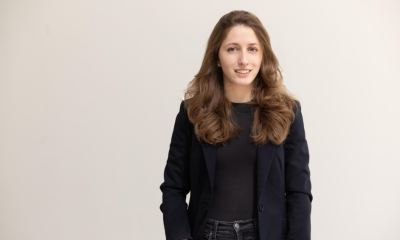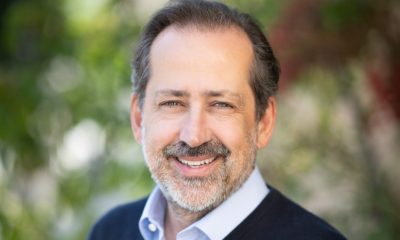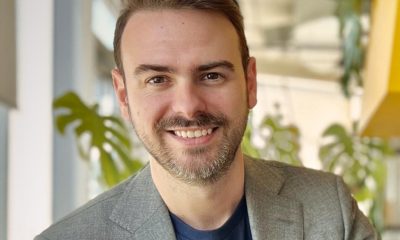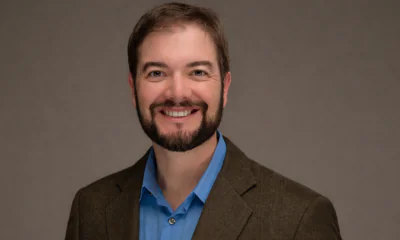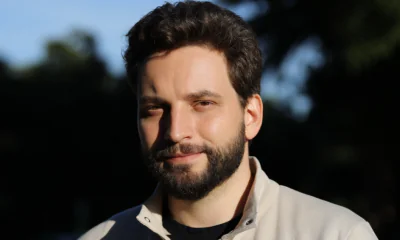Interviews
Ronny Shalev, PhD, CEO & Founder of Dyad Medical Inc – Interview Series

Dr. Ronny Shalev is CEO and founder of Dyad Medical Inc. a company that develops FDA-cleared software which automatically analyzes the content of cardiac and cardiovascular images using artificial intelligence. He has spent much of the past 25 years in executive positions, including VP of Sales and Marketing at Orbotech (NASDAQ: ORBK), where he managed teams of more than 100 people worldwide and Director of the World-wide Program Management at Marvell Semiconductor (NASDAQ: MRVL).
An expert in developing new projects employing medical image processing, machine learning and visualization. He has a significant amount of experience as an entrepreneur and is dedicated to using his skills to help physicians make accurate decisions to improve patient outcomes. He holds a Ph.D. in electrical engineering and computer science from Case Western Reserve University.
What initially attracted you to computer science and machine learning?
I’ve had a strong interest in building things for as long as I can remember. From a very early age I’ve always been deeply interested in computing. My father first introduced me to computer systems when I was young, and I’ve been fascinated with that technology ever since. I remember that feeling of needing to know just how computers worked, how they can control their environment and what possibility it could bring.
The world of computers is growing at an exponential rate and this technology has quickly become the most influential tool in our everyday lives. In my opinion, nothing else can measure up to the extraordinary growth and excitement seen in the computer industry today – especially in the deep learning sector which has proven to be extremely efficient and fascinating.
You started your career as a software engineer at IBM R&D in Israel, what were some of the applications you were working on?
As a software engineer at IBM R&D, I focused on medical archiving systems and remote analysis. In this role, I developed image processing algorithms for analysis of digital images from different modalities, such as computed tomography (CT) scans, magnetic resonance imaging (MRI), and charge-coupled device (CCD) detectors.
Your son was born with a heart defect, could you share this story and how it inspired you to launch Dyad Medical Inc?
Like any parent would be, my wife and I were shocked and confused when my son was born with a heart defect. Immediately after his birth, a cardiologist came to us drawing a heart on a napkin (as if new and young parents are able to understand anything during such a stressful, life-changing moment) and began describing the problem by saying, “In my opinion… ” Our immediate reaction was, “What do you mean in your opinion?”.
From that day on, we always wanted to combine our technical expertise to come up with a solution that will improve communication with parents/patients and improve certainty in diagnoses. That’s what inspired Dyad Medical, our technology empowers doctors to make decisions about diagnoses and treatments confidently.
Could you discuss the machine learning algorithms that are used?
The automated component of Dyad’s software is powered by artificial intelligence. The system learns from the collective insight of multiple experts using millions of past images, results, observations, and conclusions. With each additional image, the AI learns and improves. Currently, Dyad Medical owns a significant amount of image data across multiple modalities, specifically in intravascular optical coherence tomography (IVOCT) imaging for which Dyad Medical owns the largest repository held by any privately held company.
What types of images are scanned and what type of cardiovascular issues can be diagnosed?
Dyad Medical’s products enable automated medical image analysis across multiple cardiac imaging modalities. Currently, our product has FDA 510(k) clearance for echocardiogram (Echo) imaging and intravascular optical coherence tomography (IVOCT) imaging. We’re also enhancing our FDA clearances for our cardiac magnetic resonance (CMR) imaging and computed tomography (CT) scanning software.
With analyses in these imaging modalities, Dyad Medical’s products aid the diagnosis of a plethora of medical issues. This technology can help cardiologists correctly diagnose heart disease, the leading cause of death in the United States. Since the AI is trained by millions of cardiac images, the software can detect medical issues that are not easily recognizable with the naked eye. The software can also significantly improve and speed up percutaneous coronary intervention, a minimally invasive procedure used to open clogged coronary arteries.
How effective is the software at decreasing misdiagnosis and expert disagreement?
Since the AI is backed with the knowledge of millions of cardiac images and diagnoses from across the world, Dyad Medical’s software is not biased and can diagnose a wide variety of health issues with incredible accuracy. As a result, practitioners who use this technology have the backing of a ‘second opinion’ formed from the collective insights from professionals around the world, completely enhancing the practitioners’ ability to confidently diagnose a medical problem. Although this technology will not replace medical professionals altogether, it will serve as a fast, accurate, and reliable ‘second-opinion’ for practitioners. Ultimately, this technology reduces interobserver variability, which is the difference in measurements between multiple practitioners. For example, a study on Dyad Medical’s Libby system found that the software could detect a stent status with an accuracy of 100% at a pullback level and 98% accuracy at a frame level with no variability. Compared to three experts’ manual analysis, which is standard in today’s practice, performing the same task at which did the same at a 98.8% accuracy and 89% accuracy with approximately 6% variability.
In a previous interview, you mentioned that AI software that is used is organ-specific, focusing on the heart rather than focusing on the imaging modality. Could you discuss the benefits of this approach?
Focusing on the organ, rather than the imaging modality, allows us to focus on the heart – the only moving organ in the human body. Due to its continuous movement the heart is the hardest organ to analyze, however we have cracked the code (literally)! We now have two granted FDA clearances with a number of others in the pipeline. Additionally, we believe that providing the clinicians with a single platform to support all of their needs in one place provides a great advantage, enabling the ability to streamline the diagnosis workflow. Simply put, the software is a “one-stop-shop” for all cardiac imaging needs. If Dyad Medical focused on a single modality, medical professionals would need additional software to analyze their other cardiac imaging. Further, this approach allows the technology to be more easily integrated into existing physician workflows. The software can be implemented without the user having to make significant changes to their workplace or workflow.
The technology is also designed to be scalable, could you discuss how it can scale so easily?
Dyad Medical’s technology is designed to be scalable primarily because the software is cloud-based. A practitioner can access the platform from anywhere in the world on any device with internet access. The analysis results are available 24/7/365 and are not limited by time zone or office hours.
Is there anything else that you would like to share about Dyad Medical Inc?
Dyad Medical’s IVOCT imaging application (Libby® IAAA) and its echocardiogram imaging application (Echo:Prio TM) have been cleared by the U.S. Food and Drug Administration (FDA) through the 510(k) pathway, a process every medical device and software developer must do to demonstrate the technology as safe and effective to a legally marketed device. Dyad Medical is continuously working to enhance its FDA clearance applications and secure additional clearance for more imaging modalities.
Dyad Medical is setting out for its next funding round. With two existing FDA clearances and more in the works, Dyad Medical’s architecture enables all its stakeholders to benefit. With additional funding and secured forces with the financial industry, Dyad Medical’s technology will improve patient care which will be of utmost importance in everybody’s life.
Thank you for the great interview, readers who wish to learn more should visit Dyad Medical Inc.

